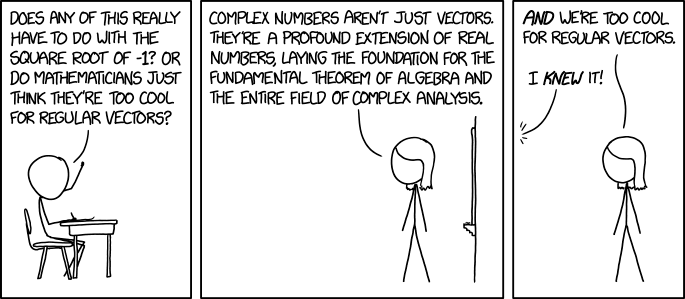Informatik I - Übung 9

Was gibts heute?
-
Best-Of Vorlesung
- Structs
- Function overloading
- Operator overloading
- Vorbesprechung
Pascal Schärli 03.05.2019
Vorlesung

Pascal Schärli 03.05.2019
Structs
struct strange_t {
int n;
bool b;
std::vector<int> a;
};- Structs erlauben uns eigene "Datentypen" zu erstellen.
- Sie sind eine Kollektion von Variablen.
- Nach der Deklaration braucht es ein Semicolon;
- Es ist Konvention, dass Namen von Structs klein geschrieben sind und mit "_t" enden.
Pascal Schärli 03.05.2019
Structs
struct strange_t {
int n;
bool b;
std::vector<int> a;
};
int main () {
strange_t x = {1, false, {0,1,2}};
std::cout << x.n << std::endl; // Output: 1
std::cout << x.b << std::endl; // Output: 0
std::cout << x.a[2] << std::endl; // Output: 2
return 0;
}- Einen Struct kann man initialisieren in dem man alle Initialisierungswerte in geschwungenen {} klammern schreibt.
- Diese Werte werden dann in der entsprechenden Reihenfolge in die Variablen geschrieben
- Elemente können ausgelesen Werden mit "."
Pascal Schärli 03.05.2019
Structs
#include <iostream>
#include <vector>
struct strange_t {
int n;
bool b;
std::vector<int> a;
};
strange_t increase(strange_t x){
strange_t out = x;
out.n += 1;
out.b = true;
for(unsigned int i = 0; i < out.a.size(); i++){
out.a[i] *= 1;
}
return out;
}
int main () {
strange_t x = {1, false, {0,1,2}};
x = increase(x);
std::cout << x.n << " " << x.b << " "
<< x.a[0] << " " << x.a[1] << " " << x.a[1];
return 0;
}Was ist der Output von diesem Programm?
2 1 0 1 1Pascal Schärli 03.05.2019
In dieser Aufgabe Schauen wir uns dieser 3-D Vektor an. Skizziert folgende Funktionen:
- Eine Funktion, welche zwei Vektoren addieren kann
- Einen Struct "line_t", welcher eine Linie definiert
- Eine Funktion welche eine Linie um einen Bestimmten Vektor verschieben kann.
struct vec_t {
double x;
double y;
double z;
};
struct line_t {
// TODO
};
// POST: returns the sum of two vectors
vec_t add(const vec_t& lhs, const vec_t& rhs) {
}
// POST: shifts a line by a vector
line_t shift_line(const line_t& line, const vec_t& amount){
// TODO
}Pascal Schärli 03.05.2019
#include <iostream>
struct vec_t {
double x;
double y;
double z;
};
struct line_t {
vec_t start;
vec_t end; // INV: start != end
};
// POST: returns the sum of two vectors
vec_t add(const vec_t& lhs, const vec_t& rhs) {
vec_t out;
out.x = lhs.x + rhs.x;
out.y = lhs.y + rhs.y;
out.z = lhs.z + rhs.z;
return out;
}
// POST: returns a new line obtained by shifting l by v.
line_t shift_line (const line_t& line, const vec_t& amount) {
line_t out;
out.start = add(line.start, amount);
out.end = add(line.end, amount);
return out;
}int main () {
vec a = {0.0, 0.0, 0.0};
vec b = {1.0, 1.0, 1.0};
line l = {a, b};
vec c = {2.0, -1.0, 3.0};
line new_l = shift_line(l, c);
std::cout << "shifted line: ";
std::cout << "(x:" << new_l.start.x;
std::cout << ", y:" << new_l.start.y;
std::cout << ", z:" << new_l.start.z << ") ";
std::cout << "(x:" << new_l.end.x;
std::cout << ", y:" << new_l.end.y;
std::cout << ", z:" << new_l.end.z << ")" << std::endl;
}Pascal Schärli 03.05.2019
Function Overloading
In C++ ist es möglich, dass mehrere Funktionen den gleichen Namen haben, solange sie unterschiedliche Übergabewerte haben.
int foo1(int a){ ... }
int foo1(int a, int b){ ... }int foo2(int a){ ... }
int foo2(float a){ ... }int foo3(int a){ ... }
int foo3(int b){ ... }int foo4(int a){ ... }
float foo4(int a){ ... }Pascal Schärli 03.05.2019
Function Overloading
#include <iostream>
void out (const int i) {
std::cout << i << " (int)\n";
}
void out (const double i) {
std::cout << i << " (double)\n";
}
int main () {
out(3.5);
out(2);
out(2.0);
out(0);
out(0.0);
return 0;
}3.5 (double)
2 (int)
2 (double)
0 (int)
0 (double)Pascal Schärli 03.05.2019
Operator Overloading
Genau wie Funktionen können auch Operatoren wie +-*/ überschrieben werden.
struct vec_t {
double x;
double y;
double z;
};
vec_t add(const vec_t& lhs, const vec_t& rhs) {
vec_t out;
out.x = lhs.x + rhs.x;
out.y = lhs.y + rhs.y;
out.z = lhs.z + rhs.z;
return out;
}struct vec_t {
double x;
double y;
double z;
};
vec_t operator+(const vec_t& lhs, const vec_t& rhs){
vec_t out;
out.x = lhs.x + rhs.x;
out.y = lhs.y + rhs.y;
out.z = lhs.z + rhs.z;
return out;
}Pascal Schärli 03.05.2019
Operator Overloading
#include <iostream>
struct vec_t {
double x;
double y;
double z;
};
// POST: returns the sum of two vectors
vec_t operator+(const vec_t& lhs, const vec_t& rhs) {
vec_t out;
out.x = lhs.x + rhs.x;
out.y = lhs.y + rhs.y;
out.z = lhs.z + rhs.z;
return out;
}
std::ostream& operator<< (std::ostream &out, vec_t vec) {
out << "(" << vec.x << ", " << vec.y << ", " << vec.z << ")";
return out;
}
int main () {
vec_t a = {1, 2, 1};
vec_t b = {3, 3, 2};
std::cout << a + b << std::endl;
}Pascal Schärli 03.05.2019
Tribool
| AND | false |
unknown | true |
|---|---|---|---|
| false | false | false | false |
| unknown | false | unknown | unknown |
| true | false | unknown | true |
| OR | false | unknown | true |
|---|---|---|---|
| false | false | unknown | true |
| unknown | unknown | unknown | true |
| true | true | true | true |
Pascal Schärli 03.05.2019
Tribool
int main(){
tribool_t t1, t2;
std::cout << "Please enter your first tribool: ";
std::cin >> t1;
std::cout << "Please enter your second tribool: ";
std::cin >> t2;
std::cout << t1 << " or " << t2 << " = " << (t1 || t2) << std::endl;
std::cout << t1 << " and " << t2 << " = " << (t1 && t2) << std::endl;
}Wir möchten einen "tribool" Struct erstellen.
Operator overloading soll uns helfen, dass dieser Wie normale Datentypen benutzt werden kann.
Pascal Schärli 03.05.2019
Tribool
struct tribool_t{
int value;
};
tribool_t tribool_false() {
tribool_t out = {0};
return out;
}
tribool_t tribool_unknown() {
tribool_t out = {1};
return out;
}
tribool_t tribool_true() {
tribool_t out = {2};
return out;
}Pascal Schärli 03.05.2019
#include <iostream>
struct tribool_t{
int value;
};
tribool_t tribool_false() {
tribool_t out = {0};
return out;
}
tribool_t tribool_unknown() {
tribool_t out = {1};
return out;
}
tribool_t tribool_true() {
tribool_t out = {2};
return out;
}
bool operator== (const tribool_t &lhs, const tribool_t &rhs) {
// TODO
}
tribool_t operator&& (const tribool_t &lhs, const tribool_t &rhs) {
// TODO
}
tribool_t operator|| (const tribool_t &lhs, const tribool_t &rhs) {
// TODO
}
std::istream& operator>> (std::istream& in, tribool_t& t){
// TODO
}
std::ostream& operator<< (std::ostream &out, const tribool_t& t) {
// TODO
}
int main(){
tribool_t t1, t2;
std::cout << "Please enter your first tribool: ";
std::cin >> t1;
std::cout << "Please enter your second tribool: ";
std::cin >> t2;
std::cout << t1 << " or " << t2 << " = " << (t1 || t2) << std::endl;
std::cout << t1 << " and " << t2 << " = " << (t1 && t2) << std::endl;
}
Pascal Schärli 03.05.2019
Tribool
bool operator== (const tribool_t &lhs, const tribool_t &rhs) {
}bool operator== (const tribool_t &lhs, const tribool_t &rhs) {
return lhs.value == rhs.value;
}Pascal Schärli 03.05.2019
Tribool
tribool_t operator&& (const tribool_t &lhs, const tribool_t &rhs) {
}tribool_t operator&& (const tribool_t &lhs, const tribool_t &rhs) {
if(lhs == tribool_false() || rhs == tribool_false()){
return tribool_false();
}
else if(lhs == tribool_unknown() || rhs == tribool_unknown()){
return tribool_unknown();
}
else{
return tribool_true();
}
}Pascal Schärli 03.05.2019
Tribool
tribool_t operator|| (const tribool_t &lhs, const tribool_t &rhs) {
}tribool_t operator|| (const tribool_t &lhs, const tribool_t &rhs) {
if(lhs == tribool_true() || rhs == tribool_true()){
return tribool_true();
}
else if(lhs == tribool_unknown() || rhs == tribool_unknown()){
return tribool_unknown();
}
else{
return tribool_false();
}
}Pascal Schärli 03.05.2019
Tribool
std::istream& operator>> (std::istream& in, tribool_t& t){
}std::istream& operator>> (std::istream& in, tribool_t& t){
std::string value;
in >> value;
if(value == "false"){
t = tribool_false();
}
else if(value == "true"){
t = tribool_true();
}
else if(value == "unknown"){
t = tribool_unknown();
}
return in;
}Pascal Schärli 03.05.2019
Tribool
std::ostream& operator<< (std::ostream &out, const tribool_t& t) {
}std::ostream& operator<< (std::ostream &out, const tribool_t& t) {
if (t == tribool_false()) {
out << "false";
} else if (t == tribool_unknown()) {
out << "unknown";
} else if(t == tribool_true()){
out << "true";
}
else{
out << "INVALID";
}
return out;
}Pascal Schärli 03.05.2019
Vorbesprechung

Pascal Schärli 03.05.2019

Erstellt einen Struct, für eine Zahl, welche nur Werte von 0-6 annehmen kann.
- finite_ring.h Invariante bestimmen (Was muss geten, damit der Struct korrekt ist)
- finite_ring.cpp Implementiert die Addition, Subtraktion und Multiplikation
Tipp: Modulo 7
+ | 0 1 2 3 4 5 6
--+--------------
0 | 0 1 2 3 4 5 6
1 | 1 2 3 4 5 6 0
2 | 2 3 4 5 6 0 1
3 | 3 4 5 6 0 1 2
4 | 4 5 6 0 1 2 3
5 | 5 6 0 1 2 3 4
6 | 6 0 1 2 3 4 5* | 0 1 2 3 4 5 6
--+--------------
0 | 0 0 0 0 0 0 0
1 | 0 1 2 3 4 5 6
2 | 0 2 4 6 1 3 5
3 | 0 3 6 2 5 1 4
4 | 0 4 1 5 2 6 3
5 | 0 5 3 1 6 4 2
6 | 0 6 5 4 3 2 1Pascal Schärli 03.05.2019
Erstellt einen Struct, welcher Komplexe Zahlen darstellen kann.
- complex.h Deklariert euren Struct und die Funktionen. (Wie in der Finite Rings Aufgabe schon gemacht wurde)
- complex.cpp Implementiert Input-/Output Funktionen
- complex.cpp Implementiert alle anderen Operatoren
Tipp:
std::istream& operator>>(std::istream& in, Complex& a)std::ostream& operator<<(std::ostream& out, const Complex a)Pascal Schärli 03.05.2019
Erstellt ein Programm, welche Komplexe Rechnungen lösen kann:
- Kopiert eure Lösung von 2a
- Kopiert den Inhalt von calculator_double.txt in main.cpp
- Importiert euer "complex.h" File
- Ersetzt double mit eurem Struct
Pascal Schärli 03.05.2019
Program of the Week
Pascal Schärli 03.05.2019
Viel Spass!
Pascal Schärli 03.05.2019

